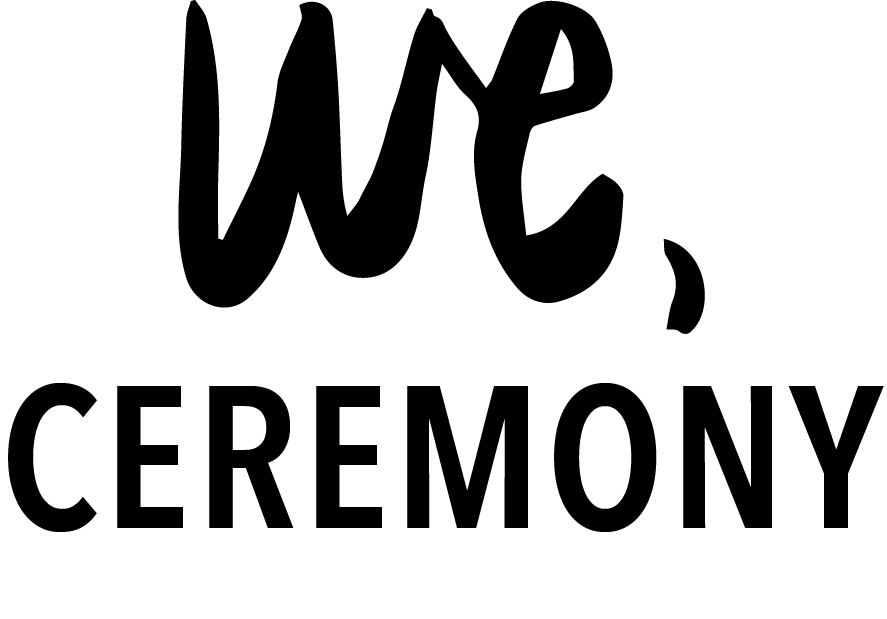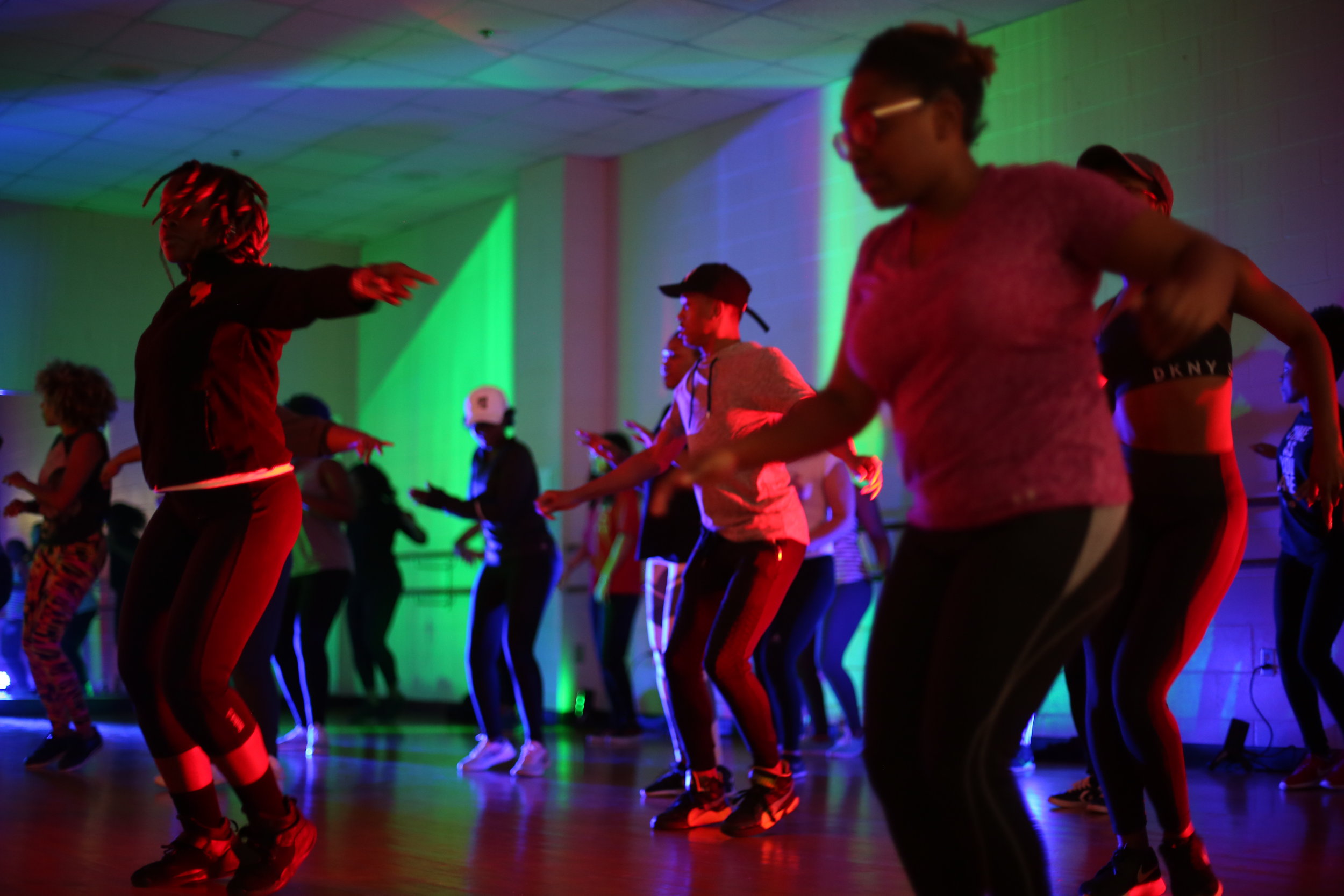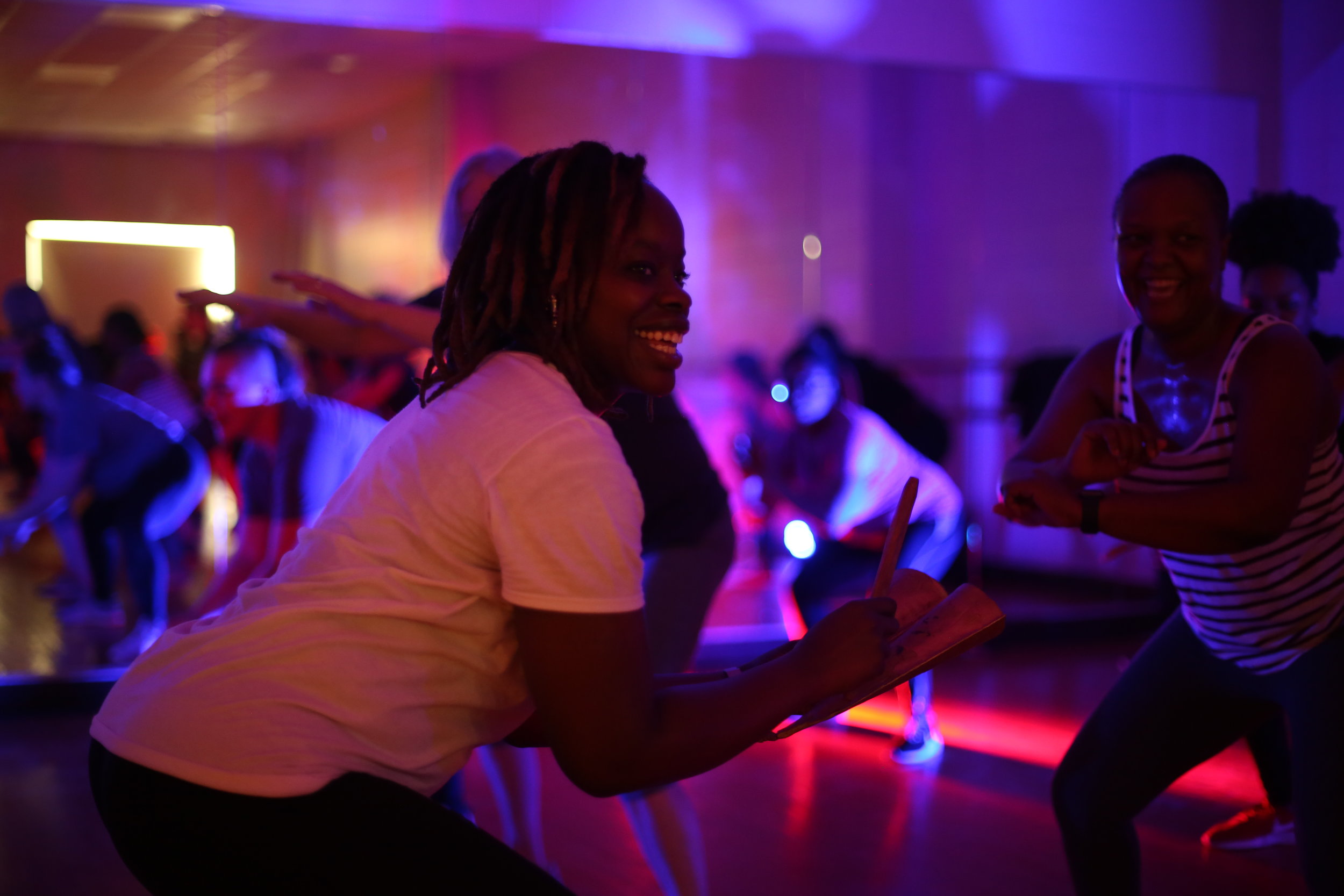Kemi Omisore
Founder, sweat coach, and choreographer
Kemi Omisore
Beginning as an idea scribbled onto a notepad, Afrobeat Fit has become a true movement - dismantling harmful social narratives, creating accessible spaces, and embracing the multitude and richness of West African dance. Through fitness and dance sessions, Afrobeat Fit provides an open space for health, music, and learning. Kemi Omisore's passion for dance and her culture have undoubtedly propelled the movement further. Even with her accomplishments, she has remained humble, deeply reflective, and thoughtful.
Photo credit @gerven
tell us about afrobeat fit and the movement you are building?
Afrobeat Fit is the movement of the diaspora. It was an idea scribbled on notebook paper back in 2012. At the time I was in Atlanta, Georgia where I was dancing professionally and my focus was hip-hop, but in my spirit I wanted to do something for the culture. One day I had a meeting with my manager, and I wanted to do this thing Afro-fit or Afro-something, mixing African dance with fitness, but he said that wasn’t the focus because I was more hip-hop. And I was like, “Okay, that’s fine. I guess.” But I wrote it down on a piece of paper and I meditated on it and prayed on it and I was like, “God, if this is meant to happen, it will happen. I don’t know when but it will happen.’” Many moons later, presently in 2016, I was working on a few different projects and late one night when I was creating, I got the tingling from God that I needed to stop what I was doing. I was doing a lot of things, but I was not doing them effectively. I was just doing a lot of different things. I got the message to do Afrobeat Fit and to do it well and only focus on that one thing — do it well and it will come to fruition. When I got that message I knew that I had to focus on this one thing and carve out what Afrobeat Fit would look like and feel like. Since then I haven’t stopped — and I can’t forget Carven Bernadeau — after getting that message about doing Afrobeat Fit, I started thinking how can I do this myself? So there was a dancer in Boston and she put out a post on social media asking, “Anyone out there love Afrobeats or getting into Afrobeat dance?” I was like “Oh my gosh, this is so funny. Carven, pick me. Let’s dance.” From that point, Carven and I would meet either in Providence or Boston at different studios to just vibe, connect, and talk. We did that close to a year and at some point I told her, “Carven, I have this business concept that I really want to bring to life. It involves Afrobeat and fitness. Are you interested? Would you be ready to come along on the ride?” and she said okay and we haven’t stopped since. Carven is currently a Sweat Coach and Choreographer and without Carven, we wouldn’t be anywhere. Teamwork is super essential to moving the whole boat forward.
Do you feel like studios in boston are open to afro dances or dances from the diaspora?
There are studios that offer dances of the Diaspora not only the African Diaspora. I think there are some and I think there are a lot of people trying to push this Afro dance movement forward. In a perfect world, I want more, but I think that is to come. There are avenues where people are trying to provide that access. It is getting better.
How do you protect the culture?
I ask myself this question daily — “Is what I am doing harmful to the culture, specifically West African culture?” For me, I must remain and continue to be a lifelong learner. We teach the people that come to Sweat Sessions, we teach them about hip-hop, history, and customs. I have to make sure that what we are teaching is accurate. That’s me learning, that’s me training, and that’s me getting the language right. As a founder, I have my different ways of doing professional development and making sure that I am not doing a disservice to the people that come. A lot of my decisions are based on this question.
We’re actually in the midst of changing our name. The term “Afrobeat” is now becoming harmful to the culture. Why? Because Afrobeat is a genre of music and some people categorize it as dance and as the Western world has become acclimated to this style, they are using it as a monolith. Anything that is coming from Africa, they are calling it Afrobeat and that is not accurate. For instance, if there is a pop song coming from Ghana, the name is Ghanaian pop music, but someone may say, “Oh, Afrobeat”, or a song from Angola, someone may say, “Oh, Afrobeat”, but it’s actually called Kuduro. Many artists, dancers, and influencers have been speaking out on this.
boutique fitness gyms and studios lack diversity and often only cater to affluent white, skinny womxn. this creates a toxic environment for those of us who do not share those identities. how do you see afrobeat fit disrupting the fitness industry and decolonizing what society sees as beautiful and healthy?
One of the things that I am very intentional about is the space we use. Right now we are at the Reggie Lewis Center in Roxbury and before that, we were in Jamaica Plain at the Tony Williams Dance Studio. Those are super open spaces and I love that now our home is at the Reggie Lewis Center because a lot of people are able to come to Roxbury and even those who may not come to Roxbury, I think by having the class there, they are able to see this beautiful space — a huge complex with so many things going on there. I am happy I am able to have my class in that space that is so edifying, warm, and affirming. With Afrobeat Fit, it was a blessing to myself because at the time I started, I needed to get into shape, but going to the gym and taking a Zumba classes wasn’t it for me. I wanted to really curate a space where all people could come to and all people could come to learn more, while also leaving better than they came. I really sat with that visceral emotion that I wanted to feel. I love meditation, so I sat with that emotion. When I was carving out the brand, I wanted to add specific things that would do just that. If you come to the class, you will notice that we do that and build solidarity among people by interacting. When people come, they’re usually super nervous and we want to do things so they are able to break past themselves spatially and intercept someone else’s space — like giving each other a high-five or giving each other a smile. If someone is in a warm environment, they are able to feel like they can work out and are able to make friends. We do little things like that throughout the instruction to really dismantle those narratives and the blockades that could be placed within a gym setting.
When I started the business I had locs — that was my way of showing people where my stance is and how I am here to make you uncomfortable. If you see my locs and those make you uncomfortable that’s good because we can start by having a conversation with this.
As a founder, choreographer, and instructor, how do you practice self-care?
I love kettlebells and I do them 3 times a week. I also train in Afro and dance multiple times a week, but I plateaued, so I need to lift heavy. I love taking dance classes. I like to take off the sweat coach/leader hat. Sometimes I get tired of being a leader and tired of being at the forefront, so I appreciate going to a class and learning from someone else.
cultural dances, like music and food, are deeply valued across immigrant communities of color. what are some of your favorite west african dances?
Right now one of the dances that is really trending is the Zanku. A lot of songs have inspired the Zanku. It first came out as a song a couple years ago and then a dance was integrated with it. So now, Zanku is morphing into other dances and it’s really a trailblazer right now. I love to do it and the people that come to sweat sessions love to do it too.
structural racism has rendered resources on health and fitness inaccessible to black and brown communities. what are some ways afrobeat fit is combating those barriers?
One of the main things I’ve built into my company is the access piece. Our classes are significantly lower-priced compared to a lot of dance fitness classes. Sometimes they are too low, but Carven always reminds me of the access. The hope is that people can take the class — like young people. So someone can take reasonably priced classes in order to stay fit. We try to keep it at a manageable space, so they can save up, but also invest in the company. Males are also free in order to dispel narratives and disrupt the social constructs of toxic male masculinity and gender constraints in fitness and dance. A lot of men and those who identify as male come, and they bring their friends and they come back. It’s pretty economical for the community.
what reactions, if any, have you received about your pricing model for men?
With West African dance, it is not confined to gender — that is a westernized thing where it’s like, “I can’t dance because I am a guy and that does not exist here and we are not doing that.” One thing we always do is clap it up for a man and we give the spiel that we are dispelling social narratives and that this is a safe space to wine your hips and dance the way you want to because that way of thinking is a westernized thought process and non-existent in West African dance. I was in D.C. last weekend for a class and half of the class was men and those that identify as men, and that was major.
who or what inspires you and keeps you motivated? who are some of your mentors?
Honestly, going through this process, I’ve really been connecting with the people that have come before me. My ancestors as well and the womxn that have paved this arduous path and being able to reflect on the things I have been able to do because of the work the womxn before me have done. I can’t pull names, but I feel it. One womxn that instills that inspiration is my grandmother. She died at a later age and she was an entrepreneur as well. She had a very large family, she was a matriarch, and living in Nigeria, I know she dealt with a lot of social constructs being a womxn. She dealt with a lot, but still really acquired a lot and she is pretty awesome. She’s in my soul.
What can we expect next from afrobeat fit? any upcoming projects?
Yes! I will be a part of the Be Well Fabulous Black Woman Tour hosted by Black Women About Business Tour in April and they have various stops in the Great Lakes area and they are all about changing social narratives and providing resources to womxn of color. There will be more partnerships with Afrobeat Fit in terms of different organizations focused on womxn. We have a partnership with a fitness line called Gola, which is womxn-led. You will hear a lot more from us - check out www.afrobeatfit.com for more updates!
Photo credit @gerven
what advice do you have for budding woc entrepreneurs, specifically black and brown entrepreneurs?
Throw away the “If-they-can-do-it-then-so-can-I” narrative and adopt the narrative that if someone can work as hard to get to their dreams, then it is possible for me to do the same. Be mindful of discrediting people and the hard work that they have put into ventures and projects. There are loads more than what meets the eye. Folks are on a path with peaks and valleys; with more valleys than peaks and with blood, sweat, and multiple tears. Be prepared, the road of a dreamer is not an easy one.
Follow Kemi on Instagram
Follow Afrobeat Fit on Instagram, Facebook, SoundCloud, and YouTube
Learn more about Afrobeat Fit on their website







